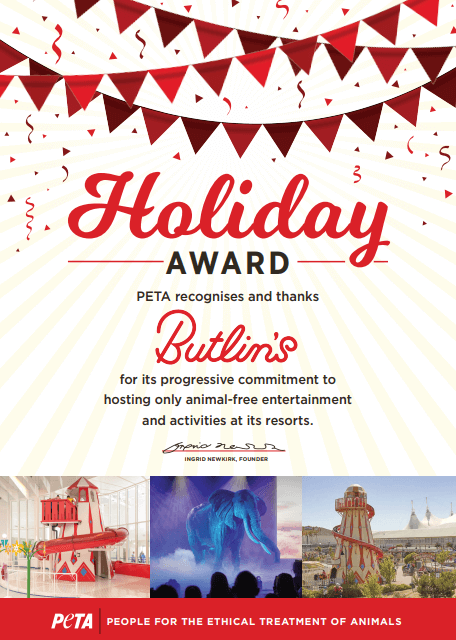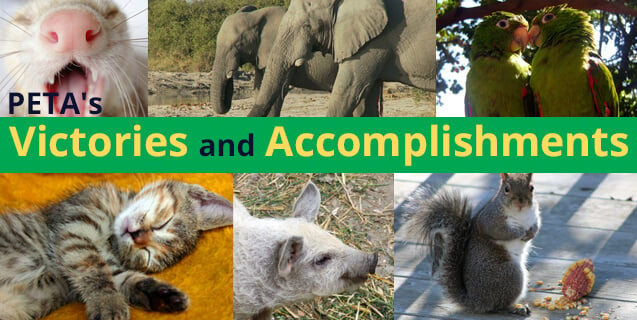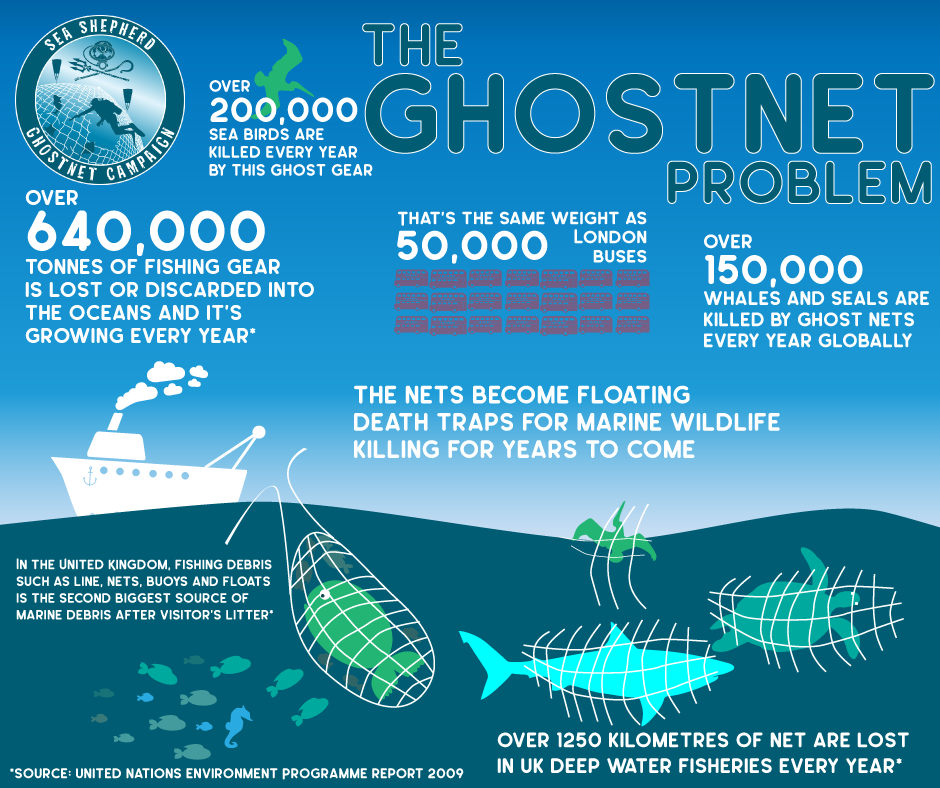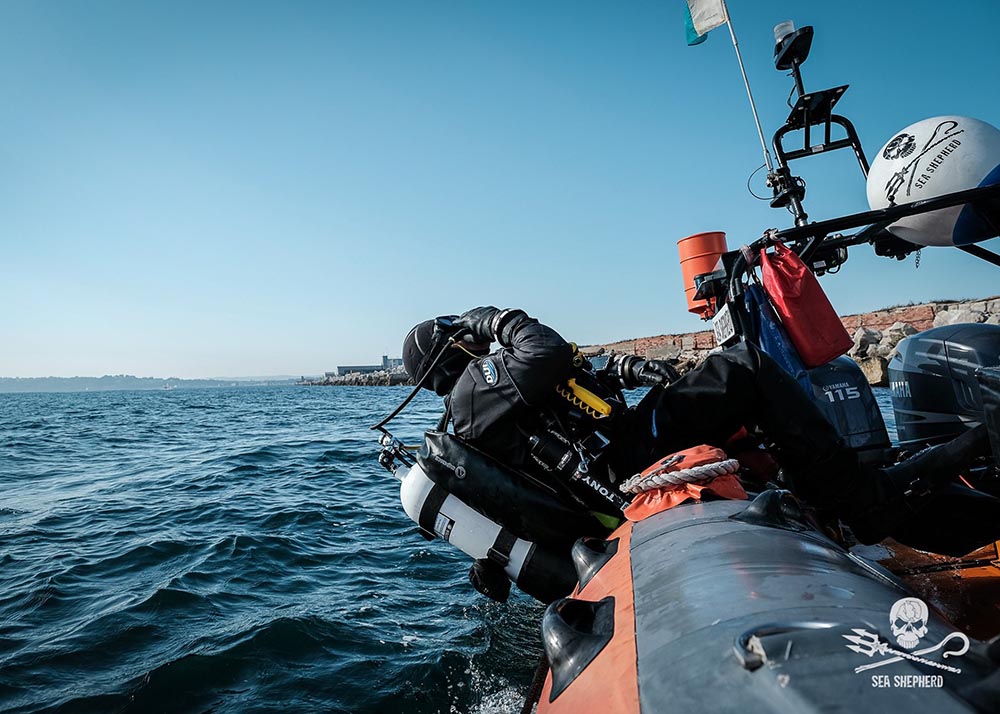Earth Hour is nearly here!

Remember to turn off your lights, but first get some candles!
The blog song for today is: " All over the world" by Electric Light Orchestra.
TTFN
Earth Hour is nearly here!

Remember to turn off your lights, but first get some candles!
The blog song for today is: " All over the world" by Electric Light Orchestra.
TTFN

It doesn't matter what you do, as long as you do something! One hour out of a whole year isn't too much to ask is it?
The blog song for today is: " Remember (walking in the sand)" by the Shangri Las
TTFN
We’ve always been big fans of parkrun, but we were disappointed when we discovered that the weekly runs were sponsored by this “crappy” egg company. That’s why PETA – and over 13,000 of our supporters – sent a message to parkrun’s CEO urging him to find an animal-friendly sponsor.
Now that the Happy Egg Co’s sponsorship is over, well-intentioned participants can run guilt-free.
Thank you to everyone who helped make this important victory possible!
Why PETA Urged parkrun to Drop the Happy Egg Co
PETA and well-intentioned consumers were saddened to discover that parkrun was sponsored by animal suffering.
The Happy Egg Co, owned by Noble Foods, is one of the largest “free-range” egg producers in the UK. The company’s marketing materials present idyllic scenes in which chickens are given acres of green fields to explore and foliage and trees to play in. This leads caring consumers to believe that its products come from “happy hens”.
In a PETA investigation, we filmed “free-range” hens in filthy, extremely crowded sheds. Most, if not all, of the birds had been subjected to routine mutilation – part of their beaks was cut off. Many had red, raw, and bleeding wounds, likely from pecking out each other’s feathers as a result of being stressed, frustrated, and kept in unnatural conditions.
The hens on farms that supply the Happy Egg Co are certainly not happy.
Earlier this year, PETA reported the brand to the Advertising Standards Authority (ASA) for duping caring consumers with misleading marketing materials that depict happy hens in lush green fields.
We were disappointed, however, that the ASA chose not to uphold valid comments made by PETA and the public despite being provided with horrific images and video footage that proved the reality for hens was far from the fantasy presented by the brand.
What You Can DoDon’t be duped. The only label that guarantees an animal-friendly product is “vegan”. The best way to help these intelligent animals is to stop eating animal-derived foods, including eggs. Reducing demand for their eggs will help prevent chickens from being forced to live – and die – in these heartbreaking conditions.
Thank you to everyone who sent a message to the companies. These actions make a difference!
It’s a national disgrace that since 2010, 29 horses have died during or because of the race.
Horses used for racing often die of fatal injuries such as broken backs or are killed after sustaining broken legs. At Becher’s Brook, aptly nicknamed the “killer fence”, horses have slammed face-first into the ground and collided with each other, breaking necks, backs, and legs.
Horses who survive end the race exhausted and often injured.
At the end of their racing days, horses are often discarded like used betting slips – dumped with rescue charities already dealing with many cast-offs, shot at stables, or sold to be slaughtered for their flesh.
Last year, “The Dark Side of Horse Racing” on BBC One’s Panorama revealed that every year, thousands of horses formerly used for racing in the UK and Ireland are sent to the abattoir.
A PETA exposé showed that the majority of horses from around the world who are sold to the South Korean racing industry – and their offspring – are violently killed and sold for meat when they’re deemed no longer useful.
This race will continue as long as sponsors keep supporting it, but more and more companies are cutting ties. Help us urge the remaining 2022 sponsors to follow the lead of Chi Chi London, Ryanair, Close Brothers Group, and Pertemps and stop their financial support.
The blog song for today is: "Money"by Pink Floyd
TTFN
For more information on this and other issues please visit:
https://www.peta.org.uk/investigations/
Posted by Holly de Gavre on March 3, 2022 | Permalink
Butlin’s, the “home of entertainment”, is the inaugural recipient of a PETA Holiday Award, given to the holiday company to celebrate a new animal-friendly era.

As of 2022, all activities and shows across the three Butlin’s resorts are animal-free. With a host of fabulous new live shows and a wide selection of delicious vegan dishes added to menus, Butlin’s certainly offers food for thought when considering where to book your holiday this year.
“We’re delighted to receive the inaugural PETA Holiday Award. For several years now, we’ve been developing shows that bring the wow factor without using live animals. Guest feedback has been fantastic, and we can’t wait for Animals vs Dinosaurs to take to the stage in 2022. Our shows aren’t the only new thing this year. Delicious new vegan options can be found in all retail restaurants and buffets at the resorts and we’re always looking to expand our offering.”
– Jon Hendry Pickup, managing director of Butlin’s
We encourage all other holiday and tourist destinations still exploiting animals to follow Butlin’s lead.
Exclusive to Butlin’s, the roarsome new Animals vs Dinosaurs stage show features an animatronic T-Rex, Stegosaurus, giraffe, and 13 other lifelike animals. The show includes music, special effects, and lots of laughs to entertain and educate children about protecting the natural world.
Alongside this incredible new show are plenty of activities to keep the family busy, including water slides and exciting pools, thrilling fairground rides, and exclusive entertainment with the best headline acts for all ages to enjoy.
Millions of UK families are eating more vegan foods for animal welfare, health, and environmental reasons. A survey by BBC Good Food showed that 21% of children aged from 5 to 16 years old are vegan or vegetarian and an additional 36% are interested in becoming so. Butlin’s has adapted with the times: from just three vegan options on the menu in 2019 to over 100 today, the numerous resort restaurants offer a variety of vegan dishes. Just have a look at this impressive list:
The options available will vary by restaurant venue and Butlin’s resort location.
Animals are not circus acts or toy trains. Yet many are imprisoned for life, forced to perform in ways that are unnatural to them and may result in injury or even death.
At home or abroad, always stay away from places that keep animals in captivity, use them in cruel spectacles, or treat them as profit-making machines – and tell your friends to do so, too. Never go to bullfights, horse racing events, or marine parks like SeaWorld.
A few years ago now, we went to Seville and saw horse drawn carriages there, as long as people use these things then other people will use them as a source of income. The horses looked well looked after, compared to in other places, but that is not the point. As long as people are willing to pay then it will carry on.
Well done Butlins, a great leap for animals and humans.
The blog song for today is: " No Quarter" by Led Zeppelin
TTFN

Global Software Company Nutanix Drops Its Iditarod Sponsorship
After hearing from PETA that more than 150 dogs have died during the Iditarod, global software company Nutanix quickly cut ties with the race. It joins dozens of companies that no longer support the cruel Iditarod, including Alaska Airlines, Coca-Cola, ExxonMobil, Jack Daniel’s, Millennium Hotels and Resorts, and Wells Fargo. Join us in urging the few remaining sponsors, including Liberty Media and GCI, to follow suit.
Taiwan’s FDA Ends Blood Pressure Tests on Animals After Hearing From PETA
The Taiwan Food and Drug Administration (TFDA) has finalized a regulation that removes animal testing recommendations and requirements for companies wanting to make blood pressure health marketing claims about their food and beverage products. The testing included feeding foods of interest for at least eight weeks to rats bred to develop hypertension and measuring their blood pressure response using the stress-inducing tail-cuff method. The TFDA will now require only safe and effective human tests for this purpose. This follows pressure from PETA that included the submission of a detailed scientific critique at the agency’s request and e-mails to agency officials from more than 50,000 supporters opposing animal experiments.
Leading Health-Food Company in Taiwan Bans Animal Testing
Following discussions with PETA, Grape King Bio—Taiwan’s largest biotech fermentation health-food company, known there for its popular energy drink—has banned animal tests not explicitly required by law. It previously conducted or funded at least 10 animal experiments from 2002 to 2020 that involved mutilating and killing no less than 1,333 animals, purportedly to support health claims for marketing probiotics, reishi mushrooms, goji berries, and other products and ingredients to consumers.
Major L.A. Airports Ban and Remove Vile Glue Traps
Los Angeles World Airports, which owns and operates LAX and Van Nuys airports, has banned and removed glue traps! This move comes after PETA told it that the traps cause small animals stuck in the adhesive to suffer, sometimes for days, before finally dying from dehydration, starvation, or asphyxiation. Anyone thinking of buying a glue trap should first watch this video, which shows how animals stuck to these devices struggle as they slowly die. Please take a minute to urge other airports to stop using them.
No Animals Will Be Killed in 2022 Cobra Gold Exercise
A top official has confirmed to PETA that no animals will be killed in barbaric survival training drills during Cobra Gold 2022, a massive joint multinational military exercise held in Thailand and attended by the U.S. military. During these cruel, dangerous, and likely illegal exercises, troops had been forced to kill chickens with their bare hands, skin and eat live geckos, consume live scorpions and tarantulas, and decapitate cobras and drink their blood. These atrocities were initially halted in 2021 after PETA’s release of shocking video footage and our exposé, so this is the second year in a row in which no animals are being used.
Kenya Airways Ends Transport of Monkeys to Laboratories
In a huge blow to the cruel animal experimentation industry, Kenya Airways—which has transported hundreds of monkeys from a Mauritius breeding farm to the U.S. to be used in laboratory experiments—has committed to ending this practice after its current contract expires next month (February 2022). The airline’s decision comes just 24 hours after PETA contacted the airline’s CEO and chair of the board, urging them to consider what happens to monkeys who are subjected to the long flight and then torment and death in laboratories. The monkeys whose crates spilled out onto a Pennsylvania highway following a truck crash on January 21 had been flown on a Kenya Airways plane that had landed earlier that day.
Dolce & Gabbana Is Going Fur- and Angora-Free After Pressure From PETA
Following nearly two decades of pressure from PETA entities—including e-mails from over 300,000 supporters worldwide and protests both outside and inside its stores—fashion brand Dolce & Gabbana has confirmed that it will ban fur and angora from all future collections!
![]()
Victories
Since 2001, Oceana has achieved hundreds of concrete policy victories for marine life and habitats. From stopping bottom trawling in sensitive habitat areas to protecting sea turtles from commercial fishing gear, our victories represent a new hope for the world's oceans.
The North Atlantic shortfin mako shark, which has been classified as endangered on the International Union for Conservation of Nature’s (IUCN) Red List of Threatened Species since 2019, is now protected from fishing for two years. Specifically, fishers are prohibited from keeping any short fin mako sharks they catch, as well as shipping them or landing them at any port. Many longline fishers targeting swordfish and tuna also catch mako sharks, often keeping them to sell commercially. The decision, which was made by the International Commission for the Conservation of Atlantic Tunas (ICCAT), will allow the species to begin to recover. This victory would not be possible without campaigning from Oceana and our allies, who rallied support for the ban from U.S Members of Congress and government officials.
Brazil’s industrial fishing vessel data were made publicly available through the Global Fishing Watch (GFW), a platform founded by Oceana, Google, and SkyTruth. This will allow anyone in the world to monitor more than 1,400 fishing vessels in real-time for free on the GFW platform. The data available on GFW follows campaigning by Oceana in Brazil to increase transparency and traceability at sea and combat illegal, unreported, and unregulated fishing. The victory also follows the launch of the OpenTuna initiative, developed with support from Oceana and GFW, which publicizes tracking data from Brazil’s tuna fleet on the OpenTuna website.
California designated the Western Pacific population of leatherback sea turtles as endangered under the California Endangered Species Act (CESA). Pacific leatherbacks are the most endangered sea turtle in the Pacific Ocean with their population having declined 95% over the last 30 years. The added California designation will enhance efforts by the state to study, protect, and recover these turtles and their habitat. The CESA listing follows campaigning by Oceana and allies and recent regulations in California to reduce the risk of entanglements to Pacific leatherbacks, blue whales, and humpback whales in commercial Dungeness crab gear. The regulations also allow for approved alternative fishing gear that lowers the risk of entanglement, such as “pop-up” gear, to be used in areas closed to conventional gear.
President Biden signed an executive order that reinstated protections for the Northeast Canyons and Seamounts Marine National Monument off the coast of New England. The marine monument, which is roughly the size of Connecticut, is the first of its kind in the U.S. Atlantic Ocean and was first established in 2016 to protect vulnerable deep-sea coral and sponge gardens from destructive fishing methods. This monument includes diverse corals and sponges on the seafloor, serves as a nursery for commercially important fish species, and is home to critically endangered North Atlantic right whales. Oceana has campaigned for years in New England to identify and protect deep-sea coral areas from destructive fishing methods, while maintaining robust fisheries, as part of its “freeze the footprint” strategy.
California enacted two new laws to curb harmful single-use plastics, which pollute our oceans and harm marine life. One of the new laws opens the door to refillable glass beverage bottles by removing requirements that prevented bottles from being preserved and refilled by beverage producers. This change will create new jobs while also reducing waste. The second law will require single-use plastic food and beverage accessories — including utensils and condiment packages — to be provided upon request only for takeout and delivery. This will greatly reduce ocean-bound plastic waste in California as discarded plastic foodware is consistently among the top 10 waste items most found at beach cleanups across the state.
Following campaigning by Oceana and coalition partners, Delaware enacted a new law prohibiting intentional balloon releases statewide. Balloons released into the air can enter the oceans where they can harm and choke marine life. Delaware joins Maryland and Virginia in banning balloon releases, which will help protect marine life in the region and the roughly 225,000 jobs in the three states that depend on a clean coast.
Brazil’s largest home food delivery service, iFood, publicly committed to deliver 80% of orders free from plastic cutlery, plates, cups, napkins, and straws by 2025, following a campaign co-led by Oceana and the United Nations Environment Program’s Clean Seas Campaign. They will also set public reduction targets by 2023 for additional categories of plastics in food deliveries: plastic containers, sachets, and bags. Additionally, iFood has committed to transparency by publicly disclosing data on its plastic footprint, and also to subjecting these disclosures to an independent audit, which will be made public. With the target reductions in place, iFood will stop 1.5 billion single-use plastic items per year from entering the environment. Oceana continues to campaign for other food delivery services to follow suit.
The Biden-Harris administration has expanded critical habitat protections for endangered Southern Resident orcas along the coasts of Washington, Oregon, and Northern California. The new protections span across nearly 16,000 square miles in the Pacific. With only 74 orcas remaining, the Southern Resident orca population is threatened with extinction. Their survival depends on the abundance of Chinook salmon, whose numbers have also declined. This critical habitat designation will help ensure these orcas have clean ocean waters free of disturbance. Oceana continues to campaign to protect orcas, salmon populations, and marine habitats.
Following campaigning by Oceana and allies, Fisheries Management Councils (FMCs) were restored in Brazil after the government created a new framework for fisheries decision-making, “Rede Pesca Brasil.” FMCs, which the government previously terminated in 2019, support transparent and participatory decision-making process for Brazil’s fisheries. The 10 FMCs will allow the government, scientists, fishers, and NGOs to discuss important topics including fishing quotas and destructive forms of fishing like bottom trawling. Oceana continues to campaign to further modernize and stabilize Brazil’s fisheries law and make FMCs legally mandatory.
California Governor Gavin Newsom signed a new budget that included $1.3 million to get deadly drift gillnets out of the water. This destructive form of fishing is notorious for its indiscriminate catch of marine life including whales, dolphins, and sea turtles. In September 2020, Oceana delivered $1 million to begin to phase out the last large-mesh drift gillnet fishing for swordfish in the U.S. by January 2024 as outlined in a 2018 California state law. The law establishes a voluntary transition program for fishermen to surrender nets and state permits and incentivizes the use of cleaner gear. To date 50% of active fishermen have been compensated for turning in nets and permits, representing 20 miles of nets out of the water. Oceana continues to campaign for a federal law to end the use of large mesh drift gillnets nationwide.
Keep on with the good work everybody, it does make a difference! At this time of uncertainty and worry with wars and pandemics,we cannot forget that the planet is in serious trouble too and if we lose focus then it is another thing to add to the list.
You, me and people like us are still doing what they can to keep us on track, sometimes it feels like everything is against us but if we give up then it will be.
Give yourselves a big pat on the back for all that you do,whether it is helping the environment, each other, animal and all the rest,without you the world would be much worse.
Thank you.
The blog song for today is: "Chain reaction" by Diana Ross
TTFN
There is a growing global e-waste issue as more and more people own an increasingly large array of devices. To help put the scale of the problem in perspective, consider that there are an estimated 6.4 billion smartphones in the world. Then, think about how frequently people in more affluent countries upgrade their phones.
From a waste management standpoint, the good news is that Americans are waiting longer to replace their phones than they were just a few years ago. Although yearly upgrades are becoming less popular, the average iPhone is active for just 18 months and the average Samsung phone for 16.4 months. The huge price tag and fewer groundbreaking new features make upgrading less appealing.
Hanging onto the same phone is beneficial for numerous reasons, and it is certainly more sustainable. Let’s explore how to extend the life of your cell phone and keep it running in tip-top shape.
Is your phone acting sluggish? If so, deleting unneeded apps and
files can help boost its performance. Freeing up storage space can give
your phone an instant facelift with relatively minimal effort. Start by
identifying storage hogs, like unused videos, photos, and apps. Many
people have apps that they’ve used only once, often outnumbering apps
used on a regular basis. Video files can be quite large and can either
be moved or deleted if no longer needed.
Many of us use our phones numerous times throughout the day but don’t really give them much time to truly rest. Shutting off your phone basically clears the RAM, shuts down open apps, and plugs memory leaks. It’s recommended to do this once a week and allow it to stay off for a minute before firing it back up.
Having a scratch on your cell phone screen can be highly aggravating. Oddly, purchasing a screen protector has become an especially complicated task because there are nearly endless options and sizes. You need to find a compatible one that fits your phone and that you can live with, yet is effective. Although not a favorite of all, tempered glass does a pretty good job of protecting screens and providing some drop protection.
Likewise, a protective case also guards your phone against a myriad of calamities. Look for a case that covers the corners, sides, and back of the phone for the best protection.
Some smartphones are nearly impossible to fix or even replace the battery. Certain phones have the covers stubbornly glued on or require a proprietary tool, making it difficult to make even the simplest repairs. Yet, some devices are much less troublesome. These models do not require proprietary tools, have batteries that are easy to replace, and contain modular components.
Consider repairability before you shop for your next phone and use the iFixit Smartphone Repairability scores for guidance. iFixit ranks phones on a scale from 1 to 10. Of the phones with a 2021 release, the highest-ranking are the iPhone 13 Pro and Google Pixel 5a, which both received a 6 ranking. The overall top scorers for repairability are the 2019 Fairphone and the 2015 Fairphone 2, which both received a 10 ranking.
Here is the website address: https://www.ifixit.com/smartphone-repairability (see if your phone is on there!) and maybe if you need to get a new one,use this handy guide.
According to Apple, the average iPhone battery lasts about 500 full recharging cycles before battery performance declines. Depending on how much we use our phones, this is usually about 8 to 16 months. It is natural to consider replacing the phone when the battery bites the dust, but resist this temptation if your phone is otherwise in good condition and you can replace the battery.
This is when a low repairability score can come back to haunt us. Some batteries are extremely difficult to change while others are relatively simple. Do a bit of research to determine if it is within your skillset. The iFixit website has a repair guide for phones, with specific information depending on the model.
Many cell phone companies encourage you to get a new phone by offering promotions, easy payment plans, or even saying it is required. Even if you do need to update your phone, find out how soon. For example, AT&T notified customers that they needed to update their devices a year and a half in advance. Other companies have been known to tell customers they needed a new device, yet a supervisor said otherwise when queried.
Originally published on March 30, 2021, this article was updated in March 2022.
It is true that nothing seems to last long these days, but at the end of the day,is all the hi tech stuff in the phones that they make now really needed. As long as we can communicate with each other then isn't that enough? All these fancy cameras and blah de blah, so much more to go wrong!!
The blog song for today is: "Photograph" by Ringo Starr
TTFN
Remember the children’s book Everyone Poops? Written by Taro Gomi, it shows all kinds of animals, including humans, in action. The reader sees animals pooping in water, on the move, and covering up their business with dirt. In the end, people are shown using the toilet, toilet paper, and flushing away.
We’re all for keeping things clean “down there,” but our use of TP is leaving behind some pretty dirty business.
Toilet paper has such a large environmental impact that the Natural Resources Defense Council (NRDC) published not one, not two, but three reports in three years about the crisis.
Americans are the heaviest per capita users of toilet paper in the world. Most major U.S. brands rely on wood from the Canadian boreal forest. This forest is particularly important from a climate standpoint. According to NRDC reports:
“This great northern forest is the most carbon-dense, intact forest left on the planet, locking up in its soils and trees twice as much carbon as the world’s oil reserves.”
Logging in the boreal forest releases an estimated 26.4 million metric tons of carbon dioxide into the atmosphere. That’s roughly a quarter of all the carbon emitted from all the trucks in cars in the U.S. in 2019. Among the ways that toilet paper adds carbon into the atmosphere:
We’re finally having a national and global conversation about reducing our consumption of resources. Yet there is little progress in replacing virgin fibers with recycled paper content for toilet paper.
TP manufacturers rely heavily on virgin wood fibers to create their products. They are reluctant to seek alternatives due in part to consumer demand and expectations. Yet using post-consumer recycled content has significant benefits. Toilet paper made with post-consumer recycled content:
Each person in the U.S. uses an estimated 141 rolls of toilet paper per year. Despite accounting for about 4% of the global population, Americans use 20% of the world’s toilet paper. Disturbingly, if you measured the toilet paper an average American uses in their lifetime, it would equal about 634 miles.
Looking at that another way, it takes one tree to make roughly 1,500 rolls of toilet paper. That comes out to over 31 million trees to make just one year’s supply of TP for everyone in the U.S.
The average per-person use of TP in Portugal, Germany, and the U.K. is 137, 134, and 127 rolls, respectively.
Not everyone uses this much TP, though. A recent study looked at the average use of this paper product throughout the world and found that Italy, France, and Finland use less than one-half of the amount we use in the U.S. Many countries use even less. Check out the study’s per-country usage findings in the following interactive chart.
And in some places, people don’t use any toilet paper.
While pooping is universal, using toilet paper isn’t. Less than 30% of the world’s population uses toilet paper. That leaves a whopping 4 billion people who don’t. In some places, it’s because of access. People either don’t have money to spend on TP, or there’s none to be had. In other places it’s cultural.
What do people use instead? Mostly water.
In countries across Asia, Europe, and South America, people use bidets instead of toilet paper. Bidets come in many forms. All of them involve spraying water on your bottom to keep it clean.
Bidets are catching on slowly in the U.S., due to their lower environmental impact. Even Forbes magazine advocates switching to a bidet. They state that bidets are “more hygienic and better for the environment.”
(There are health conditions that bidets are not recommended for, so check with your physician before using one.)
We’re creatures of habit. We don’t like change, so a large-scale switch to bidets isn’t likely anytime soon. But switching toilet paper brands isn’t such a big change.
If you can’t imagine not wiping your backside, there are better-for-the-planet TP brands. Earth911 has a whole buying guide to help you find more sustainable brands. The guide ranks brands according to several factors:
The guide also looks at certifications and charitable giving for each company. Reel, Bim Bam Boo, and Who Gives a Crap earned the highest marks.
If nothing else, be conscious of how much TP you use. Do you really need a huge cushion of squares for a single wipe? By paying attention, you may discover you automatically rip off more squares than you really need for a given wipe. And reducing your use of TP isn’t just better for the planet; you’ll save money, too!
What an incredible amount of loo roll! There are not a lot of manufacturers who make toilet roll out of recycled paper available here on Menorca. In our local hypermarket there is only one range of recycled paper products available in the form of toilet roll, kitchen roll and serviettes. They are not much more than the normal ones which is great.
I have found bamboo toilet roll on Amazon, but have not got around to trying it, mainly because I prefer to get here on Menorca.
The blog song for today is:"Drive in Saturday" by David Bowie
TTFN
 Every
year around 640,000 tonnes of fishing gear such as lines, nets and pots
is lost or discarded into the oceans and this already shocking figure
is increasing. These discarded nets, lines and other fishing industry
gear becomes known as ‘Ghost gear’ because of its ability to continue
killing wildlife long after the fishing boats have left it behind.
Every
year around 640,000 tonnes of fishing gear such as lines, nets and pots
is lost or discarded into the oceans and this already shocking figure
is increasing. These discarded nets, lines and other fishing industry
gear becomes known as ‘Ghost gear’ because of its ability to continue
killing wildlife long after the fishing boats have left it behind.
Around the UK this lost and discarded fishing gear is the second largest source of marine debris with over 1250 kilometres of nets alone being lost in UK waters each year.
Over 150,00 seals and cetaceans (whales, dolphins and porpoises) are estimated to be killed annually by lost fishing gear along with thousands of sea birds, turtles and sharks.

There are many reasons that fishing gear is lost or discarded at sea:
1. Entanglement with other vessels gear, snagging on wrecks or on natural topography such as reefs and rocks
2. Fishing nets and lines breaking loose or having to be cut free for vessel safety reasons
3. Risky deployment in poor sea conditions
4, Illegal discarding of unwanted fishing gear while at sea to avoid safe disposal costs back on shore
As part of a wider effort by Sea Shepherd to combat the issue of discarded fishing gear, Sea Shepherd UK launched its Ghostnet Campaign in January 2018 to concentrate on known problem areas around UK coastal waters but in 2020 our campaign is going global with our divers already being deployed to the waters of Bahrain.
The Ghostnet campaign utilises highly experienced volunteer divers and Sea Shepherd UK’s fast boats to survey UK waters looking for discarded fishing gear (DFG) and recover it for safe disposal or recycling. The divers are deployed to a potential or reported ghostgear site on one of Sea Shepherd UKʼs four Rigid-Hulled Inflatable Boats (RHIBs) where underwater 3D scanners pinpoint wrecks and sites to dive. Our crew look for wrecks located particularly near intensive netting and creel fishing areas as the equipment often becomes snagged on wrecks and rocks and we check nearby areas as the water currents move the ghostgear along the sea bed to other underwater features where it may become entangled.
The divers will survey the wreck to ensure that the net or pot can be removed safely and that it hasnʼt been down there so long as to have actually formed a habitat for marine life. Enormous care is taken not to damage the wrecks and we work in conjunction with the UKʼs Maritime Management Organisations (MMO), Natural England and Historic England who have approved our method statements and we obtain official permits whenever applicable.
Nets, lines and discarded creels are brought to the surface using lift bags which are attached to the ghost gear and then inflated to carefully lift them to the surface.
Often, we will have to revisit a wreck several times to remove all of the gear snagged on it. Once safely into the boat, the nets are then carefully disposed of on shore or taken for recycling by one of the innovative companies using them to manufacture clothes, footwear or even kayaks!
Sea Shepherd UK is always looking for experienced divers to assist with this campaign. Lifting gear from the sea bed is potentially very dangerous and therefore requires a certain level of competence. Divers should have complete a minimum of 100 coldwater dives, be qualified to the standard of at least Rescue Diver and have completed SSUKʼs unique Ghostnet Retrieval Course through our partner Scuba Diving International (SDi).

Shepherd UK has linked up with training agency Scuba Diving International (SDI) to offer the world’s first fully accredited speciality course in Ghostnet Recovery.
The course lasts two days and includes four dives with theory classes in between. Candidates need to be qualified to SDI Advanced Adventurer or equivalent level, be over 21 and able to show that they have carried out at least 100 logged dives.
The course has been created in conjunction with SDI to ensure that all divers remain as safe as possible in challenging conditions and that ghost gear is removed with no impact on the marine environment.
What a great cause to be involved in.
If anyone knows someone who has these skills,please contact them! maybe they can help! I am not sure if there is anything like this here on Menorca, I will look into it.
The blog song for today is: "On the other side" by the Strokes
TTFN
The next decade (and beyond) is at stake
Later this year, world leaders and representatives from all over the globe will be attending a crucial United Nations conference for nature and biodiversity - the the UN CBD COP 15 (United Nations Convention on Biological Diversity 15th Conference of the Parties)
The state of nature and biodiversity will be the focus for this conference, and global plans will be made for the next 10 years - decisions that will affect not only the next decade, but our future and well-being for many years to come. With enough public pressure, this could be the conference where we secure an ambitious global commitment - similar to the Paris Agreement, but for nature - to reverse the loss of nature and biodiversity by 2030.
And why 2030? Nature is not only our biggest provider - it's also one of our strongest allies against the climate crisis. Unless world leaders urgently step up their efforts to protect nature, global temperatures could rise above the 1.5 degree Celsius limit set by the Paris agreement as early as 2030, a decade earlier than previously expected. Any further increase in temperatures could mean irreversible damage to our planet.
With supporters in over 190 countries and happening shortly before the UN CBD COP 15, Earth Hour is an unmissable opportunity to put the spotlight on this crucial conference for nature, building the global momentum needed to pressure world leaders into action.

Our second Earth Hour "Virtual Spotlight"
Last year, we invited you to take part in our first-ever Earth Hour "Virtual Spotlight", sharing a must-watch video that took over the social media timelines, feeds, and Stories of millions across the world.
With
over 20,000 social media shares and 2.4 million video views in the
first 24 hours, you helped place the spotlight on our planet, the
pandemic, and our place within it all.
This Earth Hour, with the crucial United Nations nature & biodiversity conference on the horizon, we need to shine the spotlight on our planet brighter than ever before.
Not much longer to go now until the next earth hour!
The blog song for today is:"Behold the temple of light" by Pink Floyd
TTFN
A report by: Taylor Ratcliffe, he is Earth911's customer support and database manager. He is a graduate of the University of Washington....
